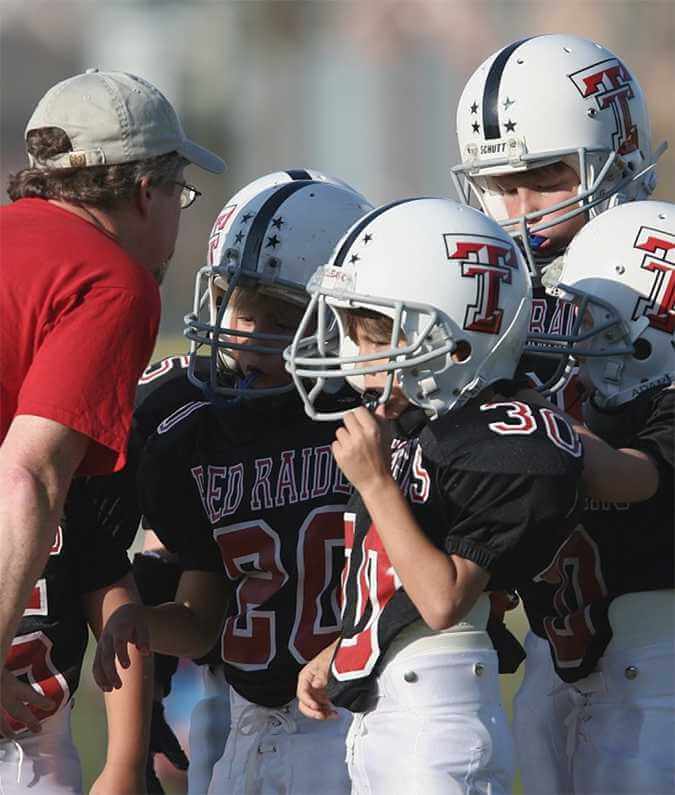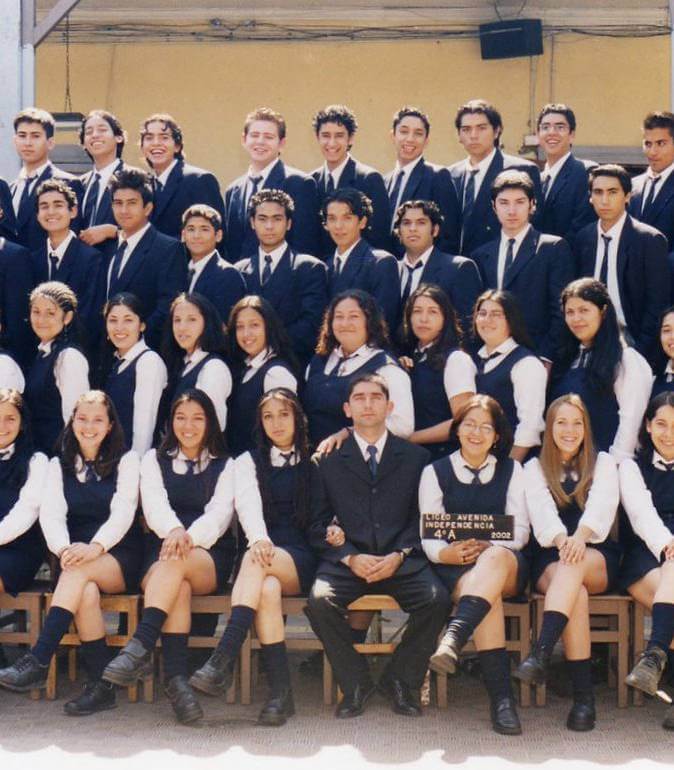When you are in school, do you feel as though the work that you do is important? Is it meaningful to you? Does your homework help your community, or improve society? Do you feel a sense of risk, danger, or hardship in anything your teacher assigns or assesses you on (not to be confused with drudgery and anxiety)? Does school give you a personal sense of purpose and meaning? Or are you bored and complacent?
Our genetic programming is incompatible with modern schooling. Some of the most ideal conditions in which our genetic programming resonates is an infantry platoon in combat, or a sports team. I’ve done both of those things, and although I love peace and am intellectually against our current wars, I can testify that something about being in combat spoke to me at a primal level. I’m certainly not alone. Talk to any combat veteran, and they’ll tell you about the feelings of loneliness and isolation that accompanies returning to “normal,” and the feelings of belonging, purpose, and a deep brotherhood that accompanied combat.

I can say the same thing about playing football, which I did in some form or another for fifteen years. You are important; the work you do matters; you are fighting to survive, and even more importantly, you are fighting for each other’s survival. There is purpose and meaning behind your actions, and your actions are how you are judged and respected by your peers. These are extremely powerful and addictive experiences because this was how we as a species survived for tens of thousands of years, and evolution does not change our genetics as quickly as we change our society.
I’ll give an example. As I mentioned before, I have some combat experience. On April 11th, 2004 (Easter Sunday), Private First Class Nathan Brown was killed in an ambush – and on October 1st, 2004, exactly one year from our activation, we lost Sergeant Michael Uvanni to a sniper. Each of these occasions deserve much more detail than I’m able to give here; however, there is something I’ve never told anyone. Each of these men were in my company, but not my platoon, which meant that I knew them in passing. Brown was killed while my platoon was conducting perimeter security (twiddling our thumbs), so there was some personal guilt felt in terms of not being involved directly in the battle, but besides that, I had the same exact feeling when each was killed, and it was instantly recognizable. It was the same exact feeling as when we lost an important football game.
I’ve never shared this – not in 14 years – because I felt like a monster. Brown, for example, was only 21 years old. We were in the National Guard, and the members of his platoon were largely from the same small community. They had, essentially, lost a family member, and not some old uncle or grandfather. A young man was killed in front of all of them, and many more were wounded. Who the hell was I to reduce fellow soldiers like that...soldiers who gave more than I ever will? To have the same type of emotions as I had when my team didn’t move a ball across a chalk line as many times as the other team...who the hell was I?
Truth is truth, so there’s no sense in denying it. It wasn’t until recently that I’ve concluded (or rationalized) that I may have had it backwards – that is, I was experiencing shades of war on the football field. Football is a dangerous sport. Not as dangerous as war, but still, dangerous enough to be considered a type of combat. We wear uniforms. We have different roles that all click together towards a common goal. The healthiest teams have individuals who prepare themselves to be the best players, only to celebrate selflessness and loyalty to the team. We are as one, a tribe, and any failure or success by one is felt by all. Victory and physical safety is on the line. What you do and how you work with others is of utmost importance.
You aren’t important to the school community, and the work that you do there doesn’t matter. You know that as well as anyone else. If you transferred schools, dropped out, or graduated, the school would not be better or worse. The buses would still arrive, the bells would still ring, the lessons would still be taught, and students would still continue to do their best to remember the answers until the test, at which point the information would be purged from their minds. Your grades are “important” until the moment you get into college, and from that point on they are entirely meaningless. You are responsible for nothing more than what the teacher tells you to do. It is an incredibly safe and dull environment.

Even the phrase “school community” is a misnomer. Students are competitors with one another. They compete for grades and class rank, as well as for the affection and approval of the teacher; group work during normal school hours is typically superficial and met with groans from students, who are concerned primarily with their own grade and not with other students’ learning. This is not how we are genetically wired to interact with each other in a community. If for tens of thousands of years our group of between 40 and 250 humans were in constant competition with one another, we would have gone extinct long ago.1 The school environment cannot resonate with our biology in the same way that, ironically, many after-school sports and clubs do.
Compare and contrast these two environments. In the compulsory school “community” you have students in classes that they did not choose, that they may not leave, to do transactional work (do this, get a grade, do that, get a grade, and on and on...), where the consequences of failing or not doing the work is doing more of the same work. The “summer slide” all but proves that what is “learned” is forgotten soon after the test. In after-school activities, students choose to come or go – however, once they choose to commit, there is an expectation. Their work or skills are needed by other people. Their preparation, or lack thereof, is noticed, and they are judged and respected (or not) by it. Where competition exists, it exists for the sake of the team, for purposes of elevating the tribe as a whole. Think of this in terms of any sports team, a musical production, a robotics club, choir, or even a creative writing club. The consequences for not preparing yourself and working as a team could be physical injury, a loss, or embarrassment – not just for yourself, but everyone else on the team.
I’m not suggesting that we start drafting kids into the military, or make participation in sports compulsory. I do posit that humans are a learning species – it’s how we survived for as long as we have – and to effectively teach and learn we need to be able to replicate some of the conditions in which we were programmed to learn. That is, there needs to be mutual consent; there ought to be a shared identity and shared goal; and there ought to be an underlying sense of danger – the question what if we should fail should carry some weight.
We can’t pit students against each other with grades and expect authentic learning communities. Boredom is much more serious than “teenagers being teenagers” – twenty thousand years ago nobody found figuring out how to keep their clan alive “boring.” Boredom is a deadly disease – literally. Read what Sebastian Junger, author of Tribe, says in Joe Rogan’s podcast interview:
The irony about modern society is that it has removed hardship and danger from everyday life, and it’s in the face of hardship and danger that people come to understand their value to their society, and they get a sense of meaning from that.
You don’t feel like you are earning your own survival in the world, you feel like it’s being handed to you. I grew up in an affluent suburb and I never had a sense as a young man that I was contributing in any way to the fact that I was physically alive on the planet...that kind of life is correlated with depression.
The one thing that I cannot survive is that kind of complacent affluence...look at their suicide rates, their addiction rates, their depression rates.2, 3

Benjamin Franklin has an answer for you, if you are looking for importance, challenge, community, and purpose.4, 5 In 1727, when he was just twenty-one-years-old, he started a small club that he called Junto. He had five other “ingenious” members besides himself, and although he was the youngest, he was their leader. They met once a week on Fridays for the purpose of “mutual improvement,” and required members to “produce one or more queries on any point of Morals, Politics, or Natural Philosophy, to be discuss’d by the company; and once in three months produce and read an essay of his own writing, on any subject he pleased.” They would debate differences civilly “in the sincere spirit of inquiry after truth, without fondness for dispute, or desire of victory” and eventually even banned “all expressions of positiveness in opinions, or direct contradiction.”
I suggest you form your group in the spirit of the Junto. You should select who you invite to join your group carefully – it will be the most important decision you make in forming the Junto. The old adage you are who your friends are is true; what they do and who they are will eventually be what you do and who you are. Consider Franklin, who was the leader of his little group, but who was the youngest and presumably least experienced. He surrounded himself with people who would raise him up, not drag him down. Don’t limit your invitations to people your own age who are from your school, but don’t rule them out, either. They can be any age and from any place, so long as they are willing to meet, have an open mind, and are “ingenious” (in the context of Franklin’s autobiography, “ingenious” most closely means “accomplished.” I might suggest repurposing the word to mean industrious, clever, and/or ambitious, and with the humble spirit of selfless service to others). Again, please don’t invite your friends simply because they are your friends. You are forming a group whose purpose is “mutual improvement” and public service, not video games and homework help.
Benjamin Franklin met with his Junto every Friday. On one hand, I don’t want to be prescriptive; on the other, I’ve run various clubs, and my wife has run a few homeschool coops, so I have an idea of how much time it takes to build a small community. One conclusion that I’ve come to is that the difference between a healthy “tribe” and an unhealthy one is size and proximity – it can’t be too big or too small, and its members have to know each other. That said, though based on experience, my suggestions are arbitrary, so do with them as you wish.
I would suggest you try to meet once a week, or at least once every other week. Anything less than that and you won’t be able to build a culture. The meeting should probably run between one and three hours, depending on how often you meet and what you hope to accomplish. Besides the writing and speaking requirements outlined above, members of the Junto could possibly consider these questions (copied and revised from Autobiography):
- Have you read, watched, or listened to anything of value that you’d like to share?
- Has anyone been rejected or failed at anything recently? What was the cause?
- Has anyone succeeded in anything lately? What was the cause?
- Have you heard about, or met, anybody who is rich? How did they become rich?
- Is there anyone you have heard about who deserves praise? What did they attempt?
- Have you or anyone you know lost your self-control in any area of life? What happened?
- Have you or anyone you know gotten sick or hurt? What treatments did you try, and were they effective?
- Have you gone on any trips? Are you planning trips? Do you know of anyone going on trips?
- How might the Junto help this community?
- Is there any young person outside of this Junto, who is currently at work in some endeavor, whom this Junto could help?
- Has anyone, in the school, community, or elsewhere, had their rights violated? What can the Junto do to help?
- Is there any successful or helpful person whom you would like to meet?
- Have you stood up for anybody lately – bullies, gossip, etc.?
- How can this Junto help you in your good deeds? (Also, how might you define “good deeds”?)
- Is there anything you are struggling with in your life right now that the Junto may help with?
- Has anyone helped you who is not here, and what can we do to thank them?
- Is there a project that you wish to complete, and would like the Junto’s help?
- Are there any problems with the Junto that we can address now?
Your Junto will function best with a structure and clearly defined agenda. It should allow for plenty of opportunities for everybody to participate, and for everybody’s ideas and suggestions, but without a structure or an agenda, it will be difficult to accomplish what you wish to accomplish. You should also have rules for attendance, participation, and behavior. If these things aren’t written and agreed upon, then it will be awkward if one person is counter to the culture you are trying to build, but hasn’t done anything so egregious to be outright expelled. Structure, agenda, and expectations shouldn’t be so draconian that people are dismissed for missing a meeting or being underprepared, but should be strict enough where people treat this as a fun way to better everyone in the group as well as the community as a whole. Again, the whole idea is self-improvement and service to the community. You want people to be intrinsically committed to this process, and disrespect of the Junto’s time and purpose shows that they are not committed to being a part of it.
Certain negative qualities of character should be instant indicators that the person is not right for the club, e.g., gossiping, laziness, bullying, etc. Someone who gossips about others to the club will gossip about the club to others, and that will destroy the spirit and culture of the Junto. There’s nothing wrong with discussing someone’s flopped attempt at public speaking if the spirit of the discussion is learning from someone’s mistakes – and how wonderful if the club could improve their own skills, and possibly even help the person who flopped in future endeavors!
Forming a Junto is a good first, proactive, positive step towards seizing your education. You are making a statement – that you are responsible for your education and will control the trajectory of your self-betterment – while at the same time developing a culture that values knowledge, wisdom, and experience over filling yourself with someone else’s data. It is a support unit as well as a team that will form the foundation for future endeavors in self-direction, as opposed to sitting around allowing yourself to be schooled. Don’t treat this as an “extracurricular” or as some temporary fixture that exists to boost your resume. This is curriculum, and where you go in your self-development, and what you accomplish in the community, is completely and totally up to you and the Junto.
You are the most important variable in the learning process. There is only one person in this universe that you must live and die with, and that’s you. School isn’t necessary for success, or the only way to reach your goals. It may be the best way to do certain things at certain times, but it certainly shouldn’t control your life. Fire, water, motor vehicles, and school, are all valuable things when you control them, and deadly things when you cannot. You control your life, and Junto could be a platform to help you make that happen.
This article is excerpted from A White Rose: A Soldier’s Story of Love, War, and School
[1] Junger, Sebastian. Tribe: On Homecoming and Belonging. Twelve, 2016.
[2] “Joe Rogan Experience #975 – Sebastian Junger.” Youtube, uploaded by PowerfulJRE, 9 June 2017, www.youtube.com/watch?v=W4KiOECVGLg. Accessed April 1, 2018.
[3] For specific clips referenced: “Are You Important?” The Outlaw Academy, 23 June 2017, brianhuskie.com/2017/06/23/joe-rogan-experience-975-sebastian-junger/. Accessed April 1, 2018.
[4] Franklin, Benjamin. The Autobiography of Benjamin Franklin. 1789. Dover Publications, 1996.
[5] Wikipedia. “Junto. Club.” https://en.wikipedia.org/wiki/Junto_(club). Accessed April 1, 2018.
If you enjoyed this article and feel called to give back to ASDE, here are ways you can support our work:
- Donate money
- Share our content with others! Click one of the buttons above to easily share on Twitter, Facebook, or email.
- Consider becoming a Contributor for Tipping Points
Tipping Points Magazine amplifies the diverse voices within the Self-Directed Education movement. The views expressed in our content belong solely to the author(s). The Alliance for Self-Directed Education disclaims responsibility for any interpretation or application of the information provided. Engage in dialogue by reaching out to the author(s) directly.






